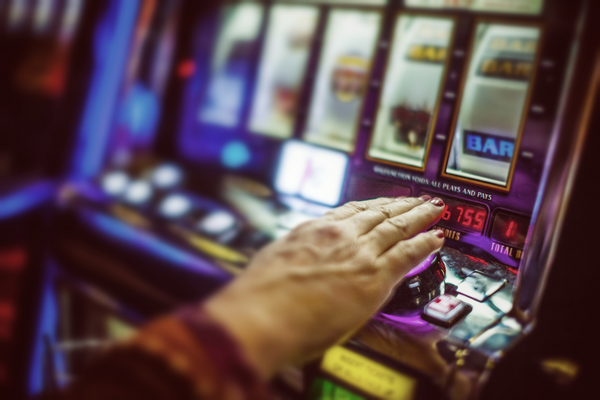
Communication and protections for people at high risk of gambling harm
IAGR partner, Greo, provides IAGR members with a snapshot of regulatory approaches to online gambling worldwide. Greo is an independent knowledge translation and exchange organisation that helps organisations improve their programs, policies and practices by harnessing the power of evidence and stakeholder insight.
This month, Greo have shared a selection of research around protections for people at high risk of gambling harm.
Some people are at greater risk of experiencing gambling-related harms whether due to risk factors such as anxiety, depression, and problematic substance use, or other factors such as age, gender, income, or life circumstances.
People who gamble at high risk often present severe cognitive biases and are vulnerable to significant harms including financial difficulties, relationship conflicts, emotional or psychological distress, and health issues.
There are several harm reduction measures that may influence the behaviour of people at high risk of harm, including the comprehensive promotion of safer gambling tools, protections such as voluntary self-exclusion, and engagement throughout the customer journey (e.g., sharing information on deposit limits and content related to affordability during sign-up until the withdrawal of winnings).
What measures can regulators take to inform future interventions to protect people at higher risk of gambling-related harms?
Recently published gambling research
Below is a selection of plain-language research article summaries that explore measures to protect people at high risk of gambling harm:
- A review of interventions to prevent or reduce harm from online gambling and electronic gaming machines
- The experiences of people who gamble at high risk with a motivational telephone intervention to encourage safer gambling
- Australian online gambling customers’ patterns of use of consumer protection tools
- The link between loyalty programs and gambling problems
- Pop-up messages reduce gambling behaviours and gambling-related thoughts
Evidence-informed action
Below are examples of measures stakeholders have taken in different jurisdictions. Gambling regulators might consider some of these actions as they create or revise regulatory frameworks in relation to communication and protections for people at high-risk of harm from gambling.
Ontario
The Alcohol and Gaming Commission of Ontario (AGCO) introduced standards for internet gaming in 2022 including requirements that advertising, marketing materials, and communications shall not exploit the susceptibilities, aspirations, credulity, inexperience, or lack of knowledge of all potentially high-risk people or entice or attract people who are potentially at higher risk of harm. Precautions must be implemented to limit marketing communications to all people known to be at higher risk. The AGCO also introduced a requirement for operators to identify and respond to high-risk behaviours by ensuring systems are in place to identify and respond to players at risk of experiencing harm.
- AGCO – Marketing and advertising standards
- AGCO – Identifying and assisting individuals who may be experiencing harm
Great Britain
‘High-value customers’, also known as VIPs, are people who gamble more heavily by gambling spend, frequency, or both. They are at greater risk of gambling-related harm. In September 2020, the Gambling Commission in Great Britain introduced new license conditions to tackle VIP practices deemed irresponsible. Before making any person a ‘high-value customer’, licensees must perform the following checks:
- Affordability – To establish that spending is affordable and sustainable as part of the person’s leisure spend.
- Safer gambling – To assess whether there is evidence of gambling-related harm, or heightened risk linked to vulnerability.
- Enhanced due diligence – To ensure the licensee has up-to-date evidence of identity, occupation, and source of funds.
- Gambling Commission – High value customers: Industry guidance
Sweden
Personalized messages about past gambling behaviour helped people who gamble online reduce future gambling. In an online intervention by the Swedish state-owned gambling operator, participants were asked for their views on their own and their peers’ gambling habits. Personalized feedback was given that compared participants’ gambling behaviours with their peers. Participants also agreed to provide the researchers with access to information about their gambling behaviours. At 28 days after the intervention, participants wagered less money per day than 28 days before the intervention. They still wagered less at 12 weeks after the intervention than they did before the intervention.





